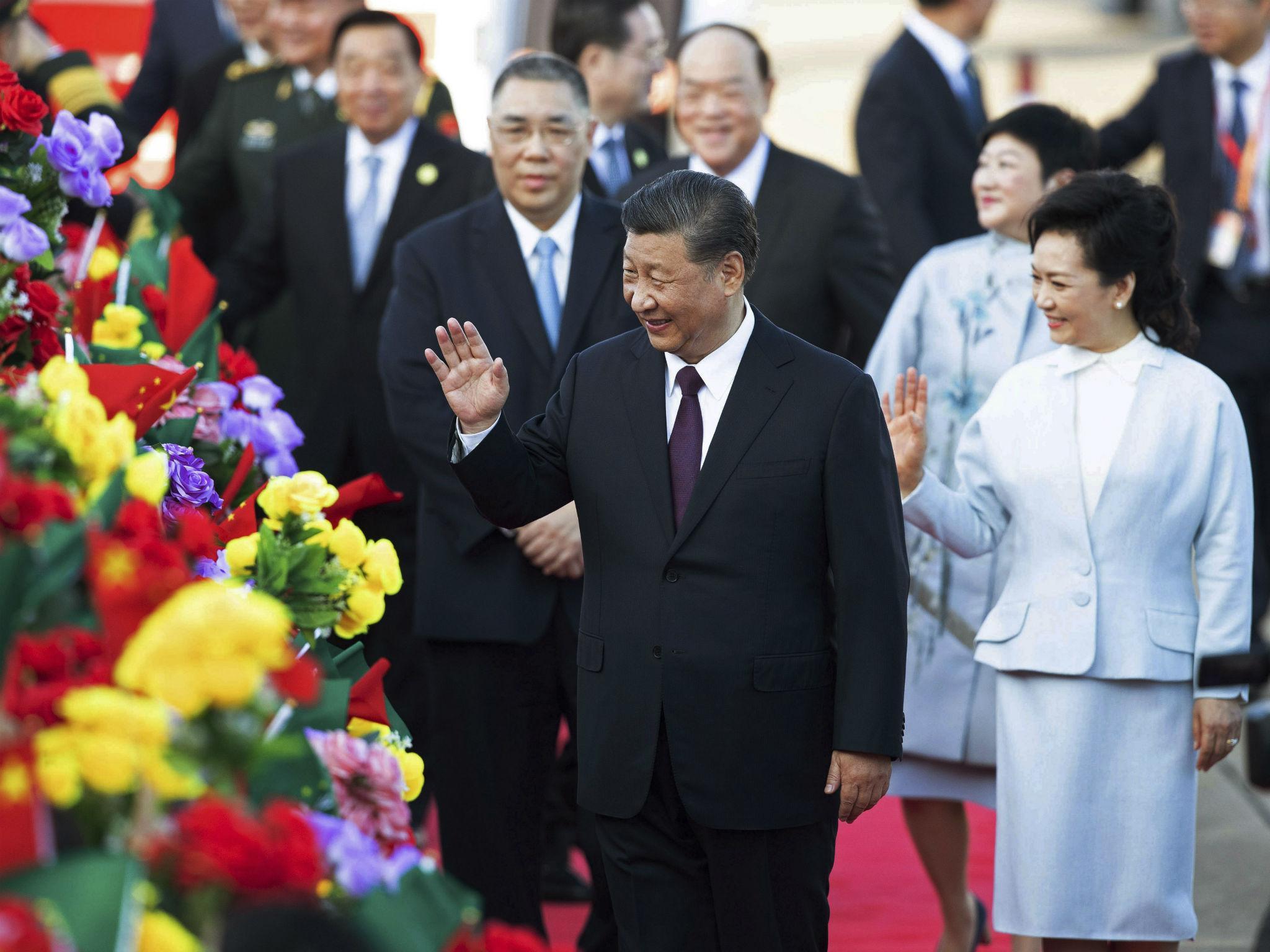Nobody should be distracted by Xi Jinping’s visit to Macau – it’s not the same as Hong Kong, whatever he says
Macau is a very different example of the ‘one country two systems’ policy – it is much closer to China than Hong Kong


Chinese president Xi Jinping’s visit to Macau to showcase the role model of “one country two systems”, in celebration of the 20th anniversary of the handover of Macau from Portugal to China, has implications for Hong Kong.
The absence of meaningful political dissent in Macau contrasts sharply with the determined fight for democracy in Hong Kong. We believe that Macau is an utterly unconvincing example of “one country two systems”, which entails Chinese promises of a “high degree of autonomy”, an independent judiciary and the rule of law. The international community should firmly stand with Hong Kong in the fight against dictatorship.
Expedience over the rule of law
The rule of law should be upheld not only in mundane matters but also in the most sensitive issues. Macau ostensibly inherited a European legal system from Portugal when Portuguese rule came to an end in 1999. After human rights treaties came into force in Macau, the Portugal administration refused the extradition of criminal suspects to China because of the practice of the death penalty there. In practice, Macau-China extraditions happen in the apparent absence of required legislation, with officials having previously defended transfers of people accused by calling the act “deportation” rather than the “surrender of fugitives”.
In recent years, the highest court in Macau has rendered highly questionable decisions that fall in line with China’s political expectations. In October 2019, it upheld a ban on a rally against police brutality in Hong Kong imposed by the Macau government. The subject of the banned rally concerned the absolute prohibition of torture, which in itself is a peremptory norm or jus cogens in international law. In a three-judge panel, two China-educated judges sided with the government to uphold the ban.
The court ruled that none of the actions taken by Hong Kong’s police amounted to torture or brutality, so the demonstration was not necessary. The Portugal-educated judge considered the rally lawful but was in the minority; in his dissenting opinion, he reaffirmed the legality of the rally. We believe the Macau judiciary’s departure from the jurisprudence and norms of European courts is bringing Macau’s legal order closer to that of China.
In early December, high-ranking Chinese official Li Zhanshu, who presides over policy for both Hong Kong and Macau, praised the latter for putting “patriots” in key judiciary positions. Li revealed that the officials loyal to the Chinese government performed “critical functions” at “key moments” in Macau.
Illusion of autonomy
Macau represents the failure or the non-existence of a “high degree of autonomy”. Culturally, Macau people have a low expectation of “autonomy”. In 2014, against the odds, Macau people staged a mass protest against a proposed compensation package for retiring principal officials. Some saw the emergence of mass protests as a sign of the “awakening” of Macau’s civil society. However, on scrutiny, at the demonstrations, many Macau people requested that Xi Jinping extend his anti-corruption campaign to Macau.
Instances of Macau people’s solicitation for the intervention of the Chinese government in local affairs are not infrequent. From time to time, the Liaison Office Building, where the representatives of the Chinese central government go to work in Macau, is the place where demonstrators go to plead with the Chinese government to resolve their disputes with the Macau government. However, the Liaison Office Building in Hong Kong has been a hotspot of demonstrations against the Chinese government’s intrusion into Hong Kong’s autonomy. The two sides would likely not see the merits in the other territory’s actions.
Macau is an unconvincing example of “one country two systems” as advertised by China. Effective indirect control by and rapid assimilation with China is evident in the “success story” of Macau. The essence of Macau’s “success” goes against the rights, freedoms and autonomy guaranteed by China in the constitutional law and treaties. We call on the international community to continue to support Hong Kong and not to be distracted by the Chinese showcase of Macau.
Joshua Wong is secretary-general of Demosisto and Jason Chao is the former president of the New Macau Association political party
Join our commenting forum
Join thought-provoking conversations, follow other Independent readers and see their replies
Comments
Bookmark popover
Removed from bookmarks